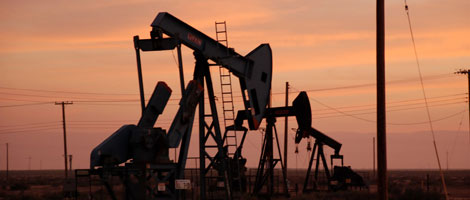LNG

February 27, 2022 | COP, Daily JAM, DAL, EQNR, Jubak Picks, LNG, PXD, Volatility |
On Saturday the European Union nations that control SWIFT, the dominant global network connecting banks, announced that they would expel some specific Russian banks from the network. The U.S., Canada, and the United Kingdom agreed with the move. The U.S. and its European allies left open the question of sanctions directly on Russia’s central bank.
The move to deny access to SWIFT means that the named Russian banks, and I’m not naming them because I haven’t been able to find a list, won’t be able to pay other banks or receive funds from other banks. They will not be able to transact business with international banks over the SWIFT network for their client businesses. I’d expect that out of an abundance of understandable caution, many Western banks will refuse to do business with Russian banks at all.

February 24, 2022 | CRWD, Daily JAM, DAL, EQNR, Jubak Picks, LNG, Millennial, Morning Briefing, PXD, Top 50 Stocks |
With the Russian invasion of Ukraine about to trigger another package of tougher U.S. and European sanctions, I think we can expect Russia to delver on Vladimir Putin’s promise of retaliation. The most obvious form of that will be cyberattacks on U.S. infrastructure, like the Colonial Pipeline attack, on U.S. financial systems through hacking to steal customer information and denial of service attacks, and on attacks to break into U.S. corporate networks to either paralyze those networks or to effectively put them off line. I wouldn’t rule out attacks on government infrastructure either at local, state, and national levels.

February 11, 2022 | COP, Daily JAM, EQNR, Jubak Picks, LNG, Morning Briefing, PXD, Volatility |
International benchmark Brent crude jumped as much as 4.7% to $95 a barrel for the first time since 2014. Brent was up 23.68% and trading at $94.77 at 3 p.m. New York time Friday. U.S. benchmark West Texas Intermediate, which normally trades below Brent in price, was up 4% to $93.50 a barrel at 3 p.m. in New York.

February 3, 2022 | COP, Daily JAM, EQNR, Jubak Picks, LNG, PXD, Volatility, XLE |
U.S. crude benchmark West Texas Intermediate rose above $90 a barrel–it closed at $90.87, up 0.60% for the day, for the first time since 2014. International benchmark Brent crude gained 0.42% to close at $91.53 a barrel. Of course, it took a wild confluence of events to push prices above $90.

February 1, 2022 | COP, Daily JAM, EQNR, Jubak Picks, LNG, PXD, Stock Alerts, Volatility |
OPEC+ meets tomorrow and the oil cartel and friends like Russia is expected to approve an increase in production that will reduce last year’s cuts in production. But the odds are that the decision won’t matter.

January 21, 2022 | COP, Daily JAM, EQNR, Jubak Picks, LNG, PXD, Short Term, Volatility |
On Saturday, January 15, in my “Saturday Night Quarterback” post wrote that conflict (a more comprehensive term than “war) between Russia and Ukraine remained a low probability event–but that the probability wasn’t zero and the the odds of conflict had increased in the past month. What’s happened since then? The odds of conflict have climbed

November 26, 2019 | Daily JAM, LNG, Volatility |
The second quarter of the year is, historically, the weakest quarter for global demand for natural gas. That's not a good forecast since the global glut of natural gas has already gotten so large that U.S. exporters of liquified natural gas have no place to send it....

May 13, 2019 | Daily JAM, LNG, Stock Alerts |
LNG (liquified natural gas) from Cheniere Energy (LNG) is one of the U.S. exports most in danger in the newest round of the U.S.-China trade war. Reflective of that the stock was down 3.57%, or $2.42 a share, as of 2 p.m. New York time, to $65.45. That has taken the...

May 10, 2019 | CAT, Daily JAM, DE, LNG, Volatility |
Whatever the ultimate end point of the trade talks between the United State and China, the next step is almost certainly the announcement of retaliatory measures by China in the wake of the Trump administration's decision to raise tariffs on $200 billion of Chinese...

March 5, 2019 | Daily JAM, LNG, Stock Alerts |
At the moment everything is running Cheniere Energy's (LNG) way. And while natural gas remains a cyclical sector and subject to the ebbs and flows of the global economy, those catalysts are enough for me to make this the #8 pick for my Special Report: 10 stocks for...

August 3, 2018 | Daily JAM, FCX, FQVLF, Friday Trick or Trend, LNG |
Our regular (or occasional or perhaps occasionally regular) Friday series ( actually running on Friday this week) Trick or Trend looks at what might (or might not) be emerging investible trends. Exclusively on JAM. This post won't run anywhere else. Ever. Today,...

July 11, 2018 | Daily JAM, LNG, Stock Alerts |
Back when President Donald Trump and President Xi Jinping were best buds they announced a deal in principle that would expand Chinese purchases of liquified natural gas from the United States in general and Cheniere Energy (LNG) in particular. I think we can assume...








